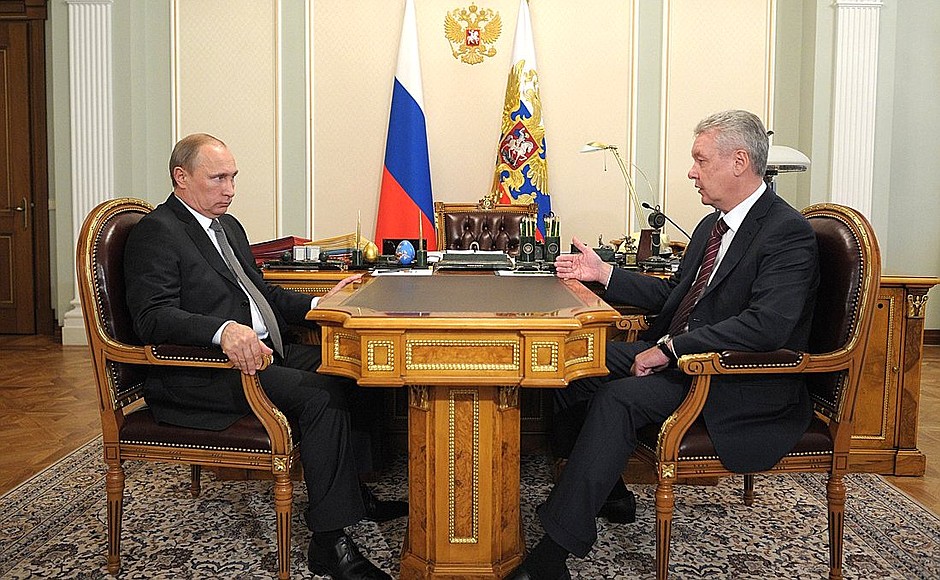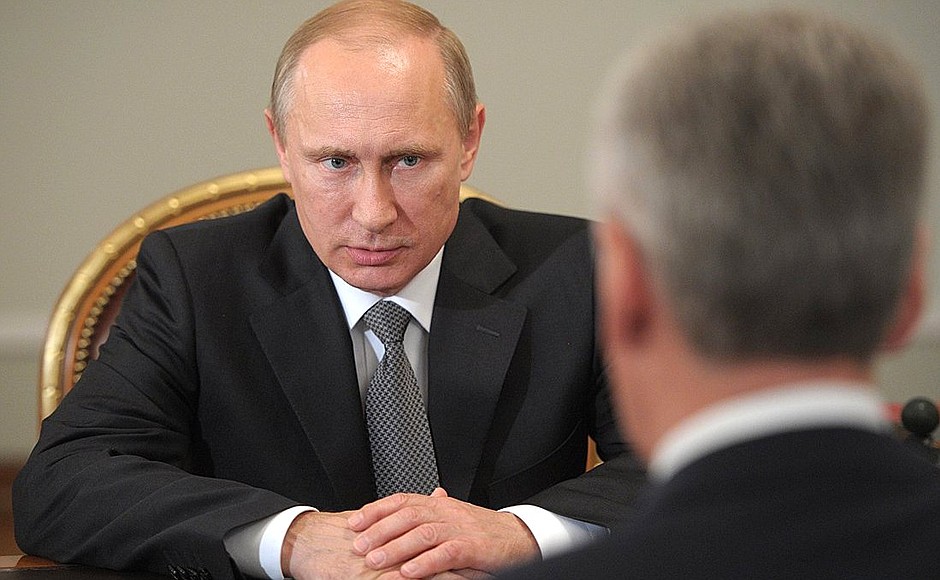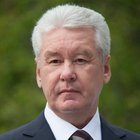President of Russia Vladimir Putin: Mr Sobyanin, I would like to discuss one thing with you, a question that is being constantly asked by the governors, and we have discussed it with you on several occasions – I am talking about cadastral valuation of lands for taxation purposes. Quite recently, at one of the meetings, the governors actually said that moving to such cadastral valuation would result in lower regional budget revenues. As far as I know, you have a different opinion, and you have already introduced it in Moscow.
Mayor of Moscow Sergei Sobyanin: That’s right, we were among the pioneer regions to introduce this kind of tax. We have it from January 1 of this year. Moscow would get some 10 billion rubles [about $290 million] in extra revenues, and that’s from only a part of the facilities – we have selected large and very large shopping malls and office centres for this, leaving medium-sized and small ones outside the programme, and the tax rate we apply is the lowest possible. Even with that, the revenues are quite considerable.
This is point number one. And point number two is that we are in constant dialogue with business community, and we analyse what adjustments can be introduced, what kind of benefits and so on. There were a lot of questions from small and medium-sized businesses as they were afraid that this tax would make the rent of premises more expensive, that the retail property owners would increase rental rates by the amount of such tax. But it turned out to be completely the opposite since the tax forced property owners to put more free premises on the market instead of holding them back just in case and inflating rent rates. As a result, rent rates of office and sales premises fell down by 3–5 and sometimes even 7 percent. The number of registering entrepreneurs increased over the period – from the beginning of the year it grew by some 9 percent. So, all these fears were empty while the positive effect is evident.
I believe we need to keep moving along this way. We are in dialogue with the business. We understand each other, and no tough situations involving bankruptcy, higher rents or inflated prices occur.
Vladimir Putin: Since we are on the real estate subject, here is a traditional question regarding the construction sector and housing construction. What is the situation like here?
Sergei Sobyanin: Despite the investors’ fears, and taking into account the political and economic turbulence that is evident, we, nevertheless, hit a record with new housing supply already last year — 8.5 million square metres more than in the pre-crisis 2009. And this year, too, starting from its very beginning, we also see that we will achieve the same figure, if not higher. Such volume of investment in real estate means that Moscow is among top three leaders in terms of new housing supply – ranking along with such majors as New York, London, Beijing and the like.
According to PricewaterhouseCoopers ratings, we rank second after Beijing in terms of the city’s capabilities to attract investment in real estate. This is the key to stable economic development, all the more so that we are not overdoing it with the dwelling density and see to it that we are not after infills. Still, this big volume exists, it is related to the investors’ interest and, as you and I already discussed, to the fact that Moscow tries to speed up the development of its transport infrastructure since this is the key to the city’s economic development.
Vladimir Putin: And how do things stand in this regard?
Sergei Sobyanin: Here we have a number of programmes, including those covering the construction of roads and metro, reconstruction of railway lines, development of taxi service and other means of transportation. We are working along all these lines.
As regards Moscow metro, in the past few years we have commissioned a total of 25 km of lines, and this was just the beginning as we were only starting the whole process of constructing, planning and engineering. In the next few years, we plan to commission much more than we did before. This project is moving ahead, we are busy with planning and engineering; it’s all really moving forward.
With regard to roads and motorways, back in 2010, we started with just 10–15 km of new or reconstructed roads, and right now the figure is 80 km. For Moscow, this is a huge figure, and the residents can see and feel it – we are building interchanges and reconstructing roads. We will try to keep up the pace we have achieved and thus close the gap that has built up over the past years.
And the project we spoke about at the meeting you held, concerning the reconstruction of railway lines, including commuter lines, which is very important, we are moving ahead with it too together with Russian Railways and Transport Ministry. And here we are keeping to the schedule.
Vladimir Putin: You are also working on the ring road.
Sergei Sobyanin: Yes, the Moscow [Little] Ring Railway. This is essentially the second metro ring; it will be integrated with Moscow metro. The main works are to be completed by the end of 2015, and in 2016 it will be put into operation. There are certain problems, but on the whole the project is moving forward. These are all very important infrastructure construction sites that will determine the city’s future development.
<…>


